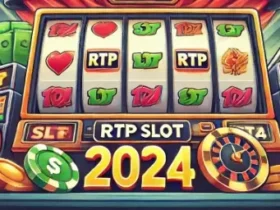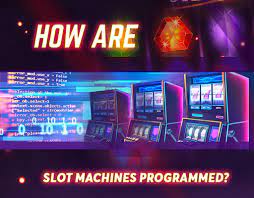If you have ever played a slot machine, you might have wondered how they work and how slot machines are programmed. Slot machines are one of the most popular forms of gambling, attracting millions of players worldwide.
They are also one of the most mysterious and intriguing, as they use complex algorithms and random number generators to determine the outcomes of each spin. In this article, we will reveal how they are programmed, and what factors affect their performance.
We will also explain some of the terms and concepts that are related to slot machines, such as volatility, RTP, and paylines. By the end of this article, you will have a better understanding of how slot machines operate, and how you can improve your chances of winning.
Revealing How Slot Machines Are Programmed
Slot machines are electronic devices that display symbols on reels that spin when a player inserts coins or tokens and pulls a lever or presses a button. The goal is to match the symbols on the reels to form winning combinations, which pay out according to a predetermined paytable.
How slot machines are programmed? The best slot machines to play at the casino can have different themes, features, and bonuses, but they all share the same basic principle of generating random outcomes.
There Is A RNG System
The core of how slot machines are programmed is a random number generator (RNG), which is a computer program that constantly produces random numbers, even when the machine is not in use. These numbers correspond to the positions of the symbols on the reels, and they determine which symbols will appear on the screen when the player spins the reels.
The RNG is designed to ensure that the outcomes of each spin are independent and unpredictable, and that the odds of winning are the same for every spin. The RNG is also audited and tested by independent agencies and regulators, to ensure that it is fair and reliable.
There Are Volatility Slots
One of the factors of how slot machines are programmed is their volatility, which is a measure of how often and how much they pay out. Volatility can be classified into three categories: low, medium, and high.

1. Low Volatility Slots
Low volatility slots are those that pay out frequently, but in small amounts. They are suitable for players who have a limited budget and prefer to play for longer sessions, with less risk and more consistent wins.
2. Medium Volatility Slots
Medium volatility slots are those that pay out moderately, but with some variation. They are suitable for players who are looking for a balance between frequency and size of payouts, and who are willing to take some risks and chase bigger wins.
3. High Volatility Slots
High volatility slots on how slot machines are programmed are those that pay out rarely, but in large amounts. They are suitable for players who have a high budget and prefer to play for shorter sessions, with more risk and more excitement.
Volatility is not usually displayed on the slot machines, but it can be inferred from the paytable, the features, and the reviews of the games.
RTP Slots for Payout Percentage
Another factor of how slot machines are programmed is their return to player (RTP), which is the percentage of the total amount of money wagered on the machine that is returned to the players over time.
For example, if a slot machine like Buffalo Gold has an RTP of 96%, it means that for every $100 wagered on the machine, it will pay back $96 to the players in the long run. The RTP is calculated based on the probability of each symbol appearing on the reels, and the value of each winning combination.
The higher the RTP, the better the chances of winning. However, the RTP is not a guarantee of how much a player will win or lose in a single session, as it is an average that is calculated over millions of spins.
The RTP is usually displayed on the slot machines, or in the information section of the games. The RTP can vary from game to game, and from casino to casino, but it is generally between 90% and 99%.
Final Words
Slot machines are programmed to generate random outcomes, using a random number generator and a set of rules and algorithms. The performance of slot machines is influenced by factors such as volatility, RTP, and paylines, which affect the frequency and size of payouts.
By understanding how slot machines are programmed, and what factors affect their performance, players can make more informed decisions and enjoy their gaming experience.






